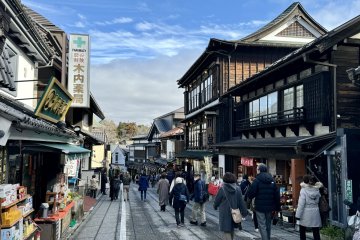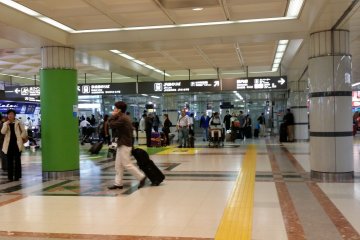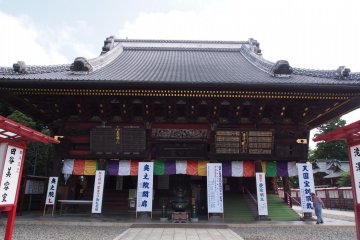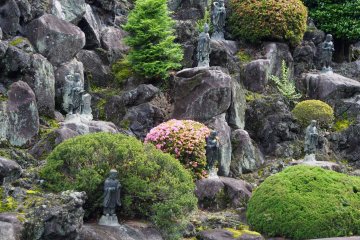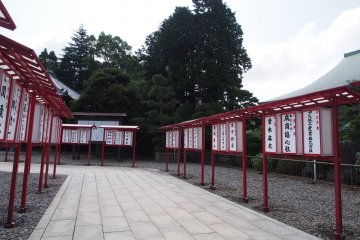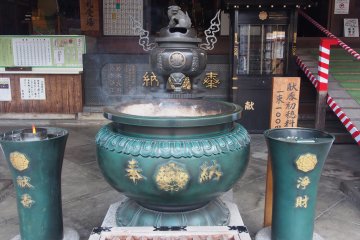The city of Narita is mostly known as the home of Japan’s primary international airport. For this reason, it is often disregarded as a sightseeing location. In fact, the city itself is a pleasant and engaging destination, featuring traditional stores and impressive sights. A visit to Narita is perfect for those with a long layover between flights, or for those who arrive at the airport in the evening and do not wish to make the hour-long journey into Tokyo straight after their flight.
The centerpiece of Narita is the Naritasan Temple (Narita-san Shinshōji), an impressive and popular Buddhist temple, about a twenty minute walk from JR Narita or Keisei Narita Stations. The Main Hall houses a statue of the Buddhist Fudo Myoo deity, believed to have been carved by Kobo Daishi, one of the most important figures in Japan’s religious history. A host of other temple buildings surround the Main Hall, all of which are architecturally impressive. A five-minute stroll from the Main Hall is the Great Pagoda of Peace, a huge Tahoto style pagoda. Also of note is Komyo-do Hall, an invaluable work of the mid-Edo period, in which the principal image of Shingon Esoteric Buddhism, Dainichi-Nyorai, is enshrined. Intricate carvings, a multitude of shrines and burning incense can all be found amid the various temples. Surrounding the temple grounds is the Naritasan Park (Naritasan Kōen), a picturesque, peaceful place, laced with walking paths, trees, ponds and small waterfalls.
The easiest way to reach the Naritasan Temple is to take the east exit of JR Narita Station and walk along Omote-sandō, the store lined approach stretching the entire distance from the station to the temple. There are souvenir shops and restaurants aplenty along the omote-sandō, many of which have been selling their goods to temple pilgrims and tourists for centuries. About halfway along the Omote-sandō is the Tourist Pavilion, where it is possible to ask questions and see local history exhibits. If you are hungry, the landmark eel house, Kawatoyo Honten, is a popular stop for those eager to try grilled eel, or for those who just want to watch the chefs carving up the eels at the front table.
Maps of Narita are available at the airport and at the various hotels in the city. For anyone wanting to stretch their legs after a long journey, a walk down Omote-sandō and a trip to Naritasan Temple should not be missed.





